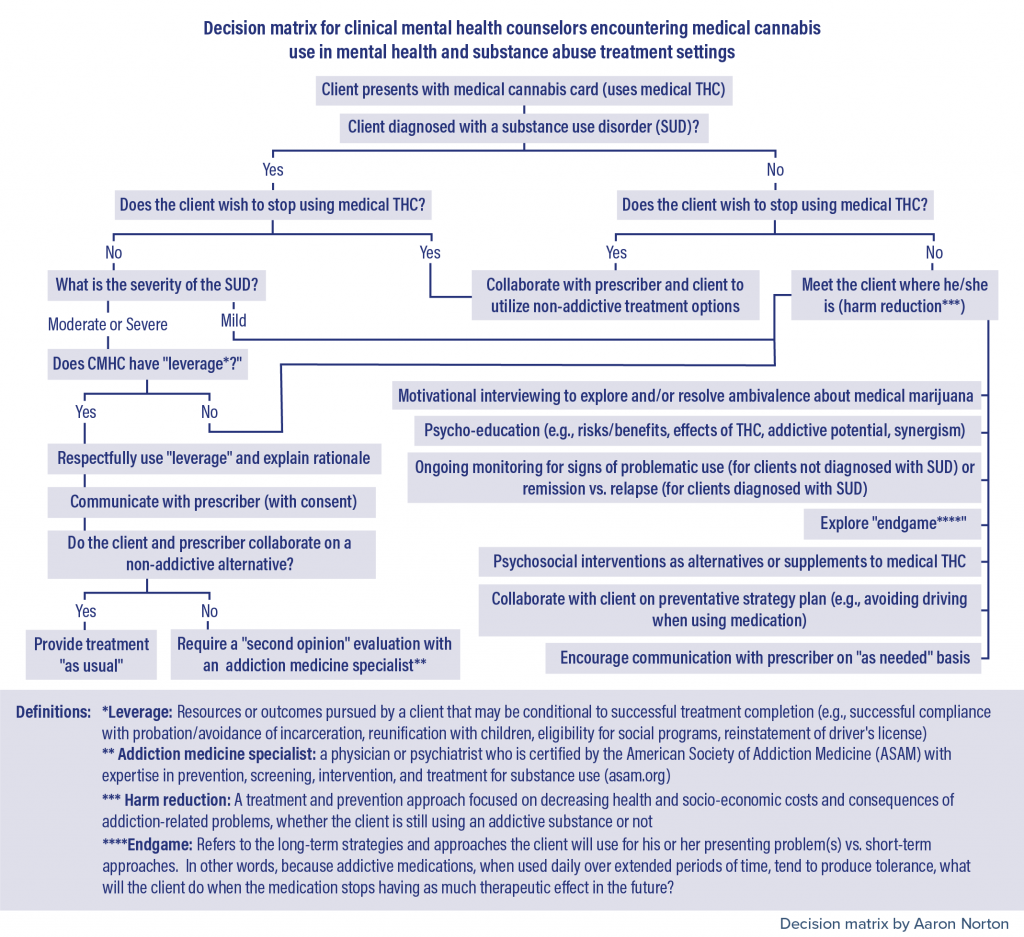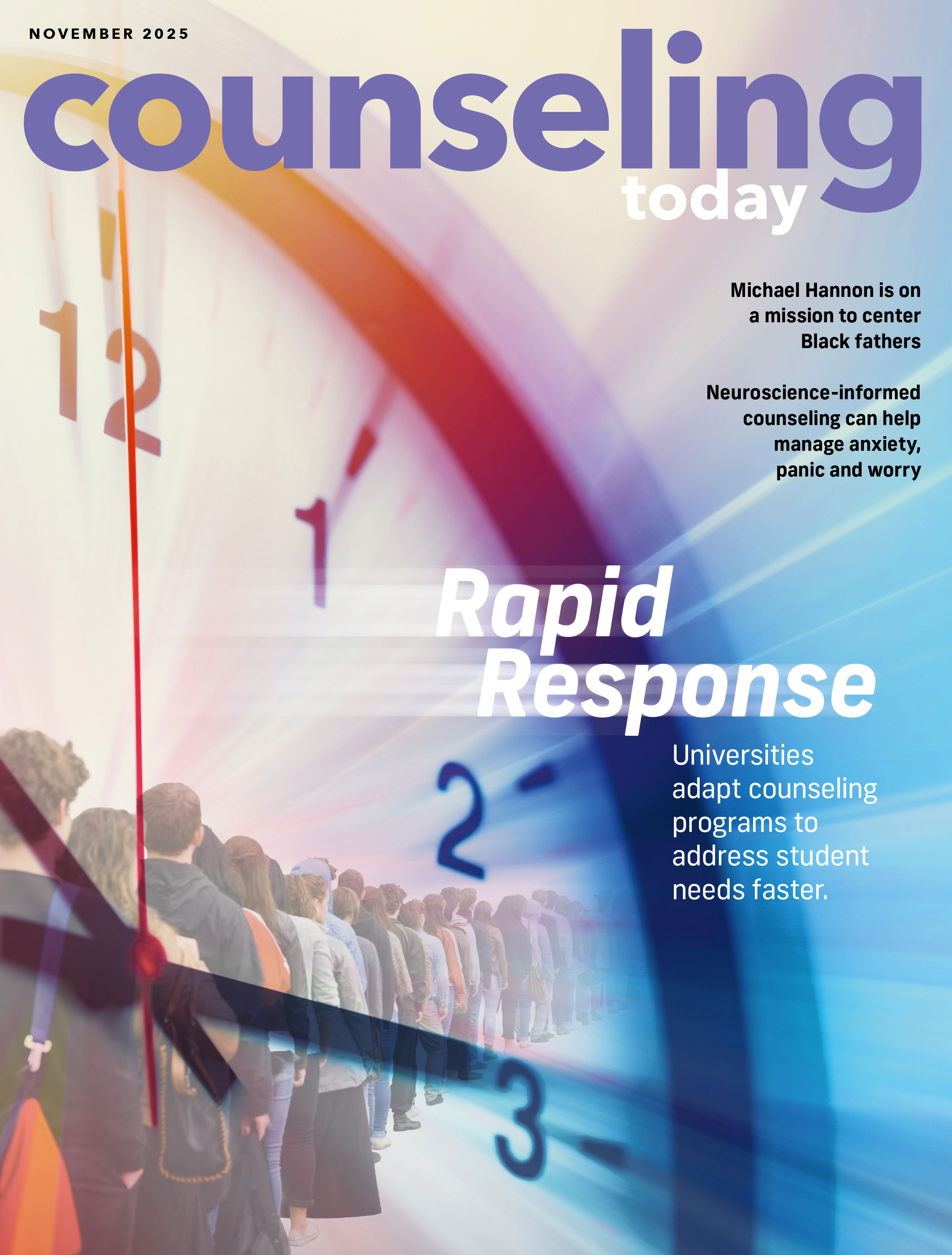Explore Counseling Today Articles
-
 Responding to the youth mental health crisis in schoolsJuly 2022 |By Bethany Bray
Responding to the youth mental health crisis in schoolsJuly 2022 |By Bethany BrayA youth mental health crisis is rising to a crescendo in American schools, so now more than ever, school-based counselors need support and buy-in from school staff, parents and outside mental health professionals.
-
 Why the body mattersJune 2022 |By Katie Bascuas
Why the body mattersJune 2022 |By Katie BascuasThe lack of evidence-based research supporting somatic therapy raises skepticism among many clinicians, but for those who do use it with clients, the benefits are clear.
-
 Building trust with reluctant clientsJune 2022 |By Bethany Bray
Building trust with reluctant clientsJune 2022 |By Bethany BrayRather than labeling hesitant clients as “resistant,” counselors should check their assumptions, work to better understand the underlying reasons and barriers these clients face, and double down on unconditional positive regard.
-
 Embracing the realities of retirementJune 2022 |By Chris Morkides
Embracing the realities of retirementJune 2022 |By Chris MorkidesMany people spend their working lives dreaming of retirement, only to be blindsided by the social and emotional issues that may be awaiting them once they leave the job behind.
-
 Sex-positive counselingMay 2022 |By Lindsey Phillips
Sex-positive counselingMay 2022 |By Lindsey PhillipsCounselors must increase their own comfort and knowledge around sexuality before they can help clients navigate theirs.
-
 Getting triggered as a counselorMay 2022 |By Lindsey Phillips
Getting triggered as a counselorMay 2022 |By Lindsey PhillipsCounselors will inevitably be confronted by countertransference, but by learning to recognize and manage it, an experience that has sometimes been stigmatized can become a tool for professional and personal growth.
-
 Self-esteem: Tending to the roots and branchesApril 2022 |By Bethany Bray
Self-esteem: Tending to the roots and branchesApril 2022 |By Bethany BrayImproving self-esteem involves exploring and dismantling unhealthy self-talk, values and beliefs that clients have internalized, often without realizing it.
-
 Preparing for private practiceApril 2022 |By Katie Bascuas
Preparing for private practiceApril 2022 |By Katie BascuasThree counselors share lessons learned so that other clinicians can enter private practice with eyes wide open — both to the challenges and the opportunities.
-
 The impact of legalized marijuana on professional counselingMarch 2022 |By Bethany Bray
The impact of legalized marijuana on professional counselingMarch 2022 |By Bethany BrayWith more states legalizing marijuana for medical and recreational use, counselors are being forced to consider the potential pros and cons in their work with clients.
-
 Self-diagnosis in a digital worldMarch 2022 |By Lindsey Phillips
Self-diagnosis in a digital worldMarch 2022 |By Lindsey PhillipsThanks to the popularity of social media postings about mental health and the ease of searching for symptoms online, more people are being tempted to self-diagnose, but is that necessarily a troubling trend for counselors?
Search CT Articles
Filter CT Articles
Current Issue
Sign Up for Updates
Keep up to date on the latest in counseling practice. Sign up to receive email updates from Counseling Today.


